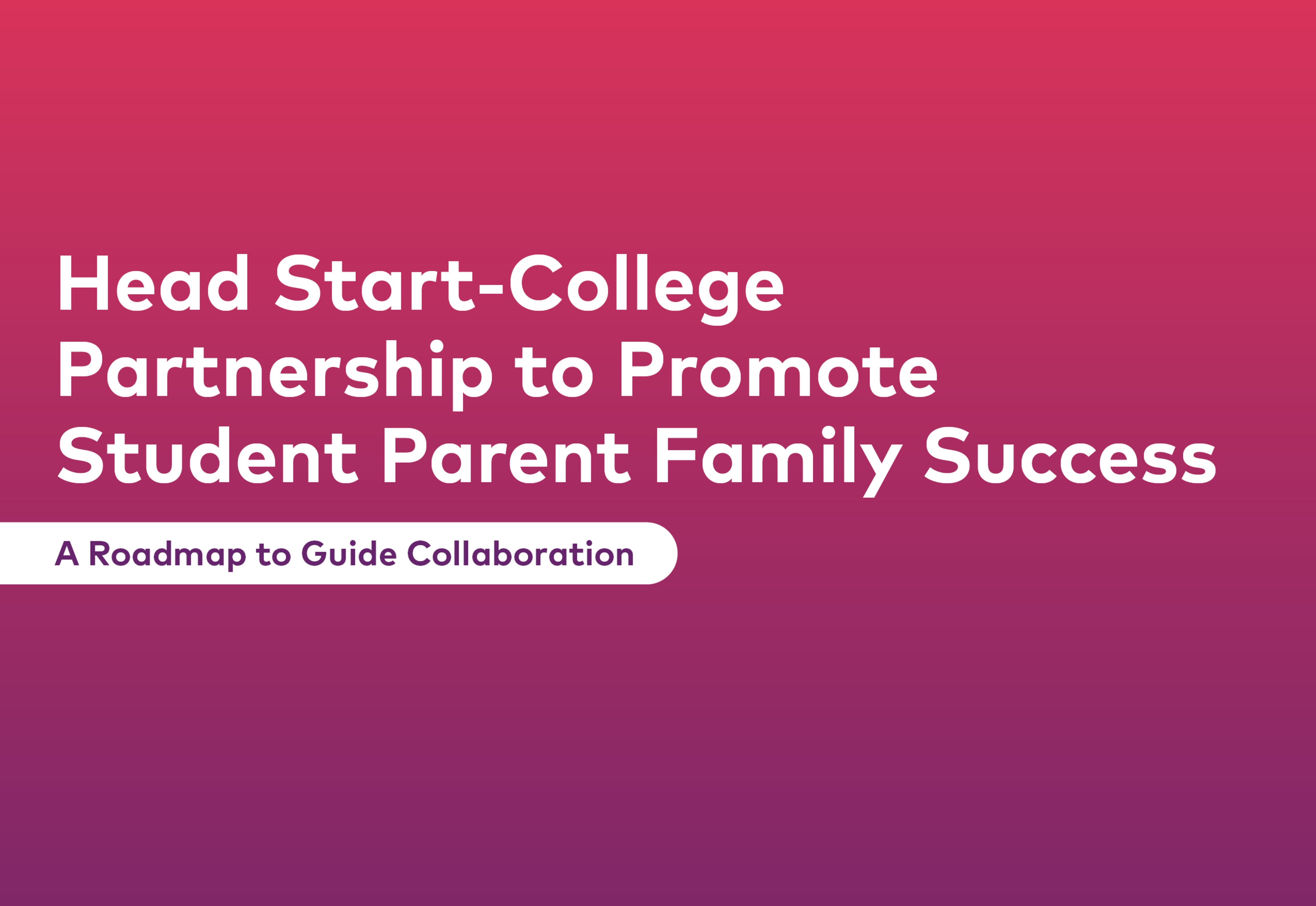Collaboration between colleges and Head Start programs holds promise for promoting the educational and economic well-being of college students with young children. Roughly one million undergraduate student parents with children under age six are income-eligible for Head Start, and their ability to complete their educational programs is linked to their access to affordable sources of early care and learning for their children.
Head Start, the largest early learning program in the United States, provides free federally funded, high-quality early learning for children alongside wraparound supports for parents. Its mission includes helping families achieve self-sufficiency and economic security, such as by helping parents access and succeed in college and workforce training.
By partnering together, Head Start and higher education institutions can encourage student parent success; help colleges and universities make progress on institutional priorities, like improved persistence and completion rates; provide benefits to students and surrounding communities; and improve Head Start programs’ ability to help children thrive and families build an economically mobile future.
This guide is designed for college and university administrators, campus child care directors and staff, early learning faculty, student services staff and counselors, and other campus stakeholders to evaluate the needs of their parenting student body and assess whether a collaboration with Head Start is right for their institutions. It describes the first steps a college or university can take to evaluate whether a partnership with Head Start is a good fit for its campus, and how to begin conversations with a local Head Start grantee or provider about how collaboration might be mutually beneficial.
This “roadmap” was informed by in-depth research from the Institute for Women’s Policy Research (IWPR) on Head Start-college partnerships published in 2019 and by feedback from campus child care practitioners, student parent advocates, and Head Start-college partnership directors who took part in focus groups during the month of March 2021. An earlier version of IWPR’s “roadmap” was published in September 2020, on which this version is based.



